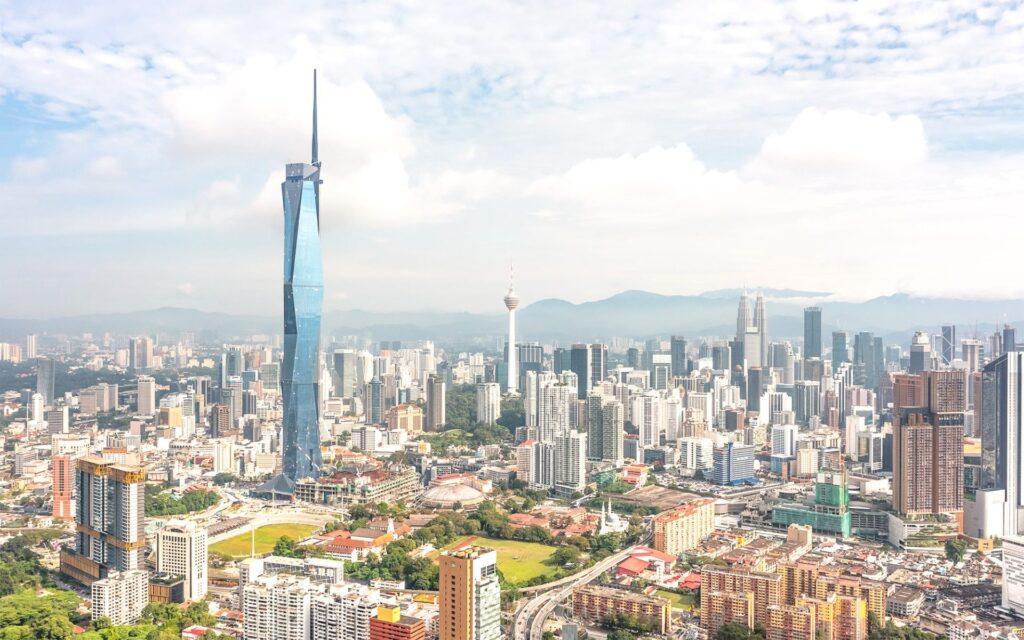

Every country has its own taxation rules, and Malaysia is no exception. The government has established clear guidelines for corporations and businesses on tax payments, including the timing and procedures for reporting taxable operations. As a business owner or CEO in Malaysia, it is crucial to understand the sales and service tax regulations to ensure compliance and avoid legal issues.
Upcoming Changes: What is SST in Malaysia and How the 2025 Expansion Affects Businesses
Key Updates Coming in 2025
Starting 1 July 2025, the Malaysian government will expand SST coverage to include more goods and services. Products that were previously exempt, such as imported fruits, premium seafood like salmon and king crab, luxury bicycles, and artwork, will now be subject to sales tax rates ranging from five to ten percent. On the services side, industries such as logistics, private healthcare, private education, and beauty or wellness services will fall under the SST structure, with service tax rates between six and eight percent.
Why Businesses Must Prepare
The upcoming expansion aims to widen the country’s tax base while keeping the system manageable. Businesses involved in the affected categories need to review their operations, update their compliance procedures, and ensure readiness for the July 2025 implementation date. To avoid penalties and ensure smooth business operations, it’s crucial to understand Malaysia’s Sales and Service Tax (SST) and stay updated on its latest developments.
Moving Past GST in Malaysia
The Goods and Services Tax (GST) in Malaysia, introduced at a 6% rate on 1 April 2015, was abolished on 31 August 2018 and replaced by the Sales and Services Tax (SST) on 1 September 2018. This transition, initiated by a tax holiday on 1 June 2018, aimed to enhance the purchasing power of Malaysians, particularly for lower- to middle-income earners, as GST was perceived to have increased living costs.
Understanding SST in Malaysia
Sales and Service Tax (SST) in Malaysia, implemented on 1st September 2018, replaced the Goods and Services Tax (GST), which was perceived as a significant contributor to rising living costs. The SST scheme is two-fold, comprising both a sales tax and a service tax, aimed at simplifying the taxation process and reducing the financial burden on consumers.
Exemptions and Zero-Rated Supplies: What is SST in Malaysia, and Who is Affected?
Essential Goods and Zero-Rated Categories
When considering what SST is in Malaysia, businesses and consumers should understand the exemptions that exist within the system. Certain essential goods, such as rice, bread, fresh vegetables, poultry, and medicines, are either exempt from SST or taxed at a zero percent rate. This structure ensures that basic necessities remain affordable for the general population.
Treatment of Exported Goods
Another crucial element is the treatment of exports under SST. Goods destined for international markets are generally zero-rated, which helps local businesses stay competitive without passing additional costs to foreign buyers. This strategy reinforces Malaysia’s standing as a significant contributor to global trade and strengthens its role in international economic partnerships.
Exemptions for Services
On the services front, not every provider is required to register or collect SST. Businesses that fall below the annual revenue threshold are typically exempt from registration. Historically, essential sectors such as education, healthcare, and financial services have also been excluded from SST. However, with the upcoming 2025 expansion, some of these exemptions may be adjusted. Staying updated on what SST is in Malaysia is vital to understanding which goods and services qualify for exemptions under the revised rules.
SST Rates and Their Variations in Malaysia
Malaysia’s Sales and Service Tax (SST) regime includes various tax rates depending on the type of goods and services. The sales tax is set at 5% for certain items like petroleum oils, construction materials, timepieces, and specific foodstuffs, while a standard rate of 10% applies to most other taxable goods, particularly luxury items. As of 1 March 2024, the service tax rate will increase to 8% for most services, excluding food and beverage, telecommunication, parking, and logistics services, which will continue to be taxed at 6%.
Additionally, Malaysia distinguishes between zero-rated supplies, which are taxable at a 0% SST rate, and exempted goods, which are not subject to any sales and services tax. This differentiation ensures that essential goods and services remain affordable while maintaining a structured tax system for other items.
Understanding Sales Tax in Malaysia
Sales tax is a single-stage tax imposed on locally manufactured goods and taxable imported products in Malaysia. Businesses are required to register for SST if their total sales value of taxable goods exceeds RM500,000 within 12 months. The standard sales tax rate for non-petroleum goods is 10%, but certain goods may attract reduced rates of 5% or other specific rates, depending on their category.
Taxable and Exempt Goods from Sales Tax
Sales tax applies to both domestically produced and imported goods, covering items like furniture, rubber and plastic products, dairy products, fruit juices, perfumes, and watches. However, various essential goods are exempt from this tax, including books, fertilizers, pharmaceuticals, live animals, seafood, and certain food items such as meat, milk, and vegetables. Additionally, precious items like gold, silver, and platinum jewelry are exempt from sales tax. Specific exemptions also apply to entities such as government departments, duty-free shops, higher education institutions, and certain manufacturers, particularly those involved in producing non-taxable goods or using raw materials solely for manufacturing taxable goods.
Understanding Service Tax in Malaysia
Service tax in Malaysia applies to specific services provided by businesses during their operations, complementing the sales tax under the SST framework. While sales tax targets goods manufacturers, service tax focuses on service providers to ensure comprehensive tax coverage.
Taxable Services and Rates
Taxable services include accommodation, food and beverage, entertainment venues, private clubs, professional services, air travel, and financial services. The standard service tax rate is except for credit card services, which incur RM25 annually per principal or supplementary card. Imported and exported services are exempt from this tax.
Registration and Compliance
Businesses offering taxable services must register with the Royal Malaysian Customs Department. Exempt organizations may also apply for registration voluntarily to align with SST regulations and maintain compliance.
SST (Sales and Service Tax ) in Financial Reporting
Sales Tax
Companies must account for it on an accrual basis. The tax liability arises when goods are sold, disposed of, or first used. Invoices for taxable sales should contain all prescribed details, which can be issued in either hardcopy or electronic form, in Bahasa Melayu or English. Businesses are required to maintain records in Malaysia for seven years, with the option to store them abroad subject to the Director General’s (DG) approval.
Service Tax
The accounting follows a payment basis. Service tax is due when payments are received or on the day following 12 months from the invoice date if full or partial payment remains outstanding. Registered businesses may claim bad debts between 6 months and 6 years from the date the tax was paid, subject to the DG’s approval. If the debt is later recovered, the service tax refund must be repaid. Adjustments for credit and debit notes must also be reflected in the SST return to ensure accurate reporting.
Organizations Required to Apply for SST Registration in Malaysia
In Malaysia, businesses must register for SST if they provide taxable goods and services and meet specific conditions. For sales tax, businesses with a total sales value exceeding RM500,000 over 12 months and those manufacturing taxable goods must register. For service tax, businesses providing taxable services with a total value exceeding RM500,000 over 12 months must register, except for restaurant operators, who have a threshold of RM1,500,000.
Registering for SST in Malaysia
To register for SST in Malaysia, first confirm if your business is already subject to the tax. If you were previously registered for GST, you are automatically registered for SST. If not, you can start the SST registration process by visiting the official portal.
Differences Between SST and Company Tax
The SST differs significantly from company tax. Company tax, governed by the Income Tax Act of 1967, applies to chargeable income such as dividends, rentals, royalties, and premiums derived from Malaysia. It is administered by the Inland Revenue Board, whereas the SST is managed by the Royal Malaysian Customs Department.
Foreign Companies’ SST Registration in Malaysia
Foreign companies are eligible to register for SST only if they have a physical subsidiary in Malaysia. Without such a presence, they are exempt from SST registration.
Penalties for SST Non-Compliance in Malaysia
Non-compliance with service tax regulations can result in a fine of up to RM30,000, imprisonment for up to two years, or both. For evading sales tax, penalties range from a minimum fine of RM50,000 to a maximum of RM500,000, imprisonment for up to seven years, or both.
Business Readiness: What is SST in Malaysia and How to Prepare for the 2025 Changes
Assessing Your Business for SST Impact
Proper preparation is key for businesses affected by the changes to what is SST in Malaysia. Companies involved in importing or manufacturing newly taxable goods, or those providing services in sectors like healthcare, logistics, education, or beauty, should assess how the updated SST framework applies to their operations.
Operational Adjustments and Training
To comply with the new requirements, businesses must update their accounting software, invoicing systems, and record-keeping processes to reflect accurate SST rates. Employee training is also essential, ensuring staff understand tax filing obligations and apply SST correctly across transactions.
Managing Customer Expectations
Clear communication with customers regarding any price changes resulting from SST updates will help manage expectations and maintain trust. With proper planning and awareness of what SST is in Malaysia and how it is evolving, businesses can ensure compliance while minimizing disruptions to their daily operations.
Premia TNC’s Assistance
Foreign organizations looking to incorporate in Malaysia should seek the expertise of a business consultant well-versed in the Malaysian legal and financial landscape. Without proper guidance, businesses risk non-compliance with corporate taxation guidelines, which could lead to significant penalties, such as those for failing to make SST payments. To avoid these pitfalls and ensure smooth navigation of the incorporation process, consult Premia TNC for professional advice on taxation and the corporate environment in Malaysia.

Q1. What is the taxable period for SST?
A taxable period is a period of 2 calendar months. However, a taxable person can apply to the Director General of Royal Malaysian Customs Department to vary the taxable period.
Q2. Do foreign companies have to register for SST?
Foreign companies are only required to register for SST if they physically operate a branch in Malaysia.
Q3. If you have already registered for GST, should you also register for SST?
The SST is the direct successor to the GST. Hence, any business registered with the GST before 2018 is not required to carry out a new SST registration.
Q4. What changes to SST are coming in 2025, and which businesses will be affected?
From 1 July 2025, Malaysia will broaden SST coverage to include more goods and services. Items like imported fruits, premium seafood, luxury bicycles, and artwork will face sales tax rates of five to ten percent. Services such as logistics, private healthcare, private education, and beauty or wellness will also fall under SST, with rates between six and eight percent. Businesses in these sectors must prepare for the new requirements to remain compliant.
Q5. Are there any exemptions from SST, and will these change with the 2025 expansion?
Essential goods like rice, bread, fresh vegetables, poultry, and medicines are generally exempt or zero-rated under SST. Exports also enjoy zero-rated treatment to support Malaysia’s global trade competitiveness. However, with the 2025 expansion, some service sectors are exempted from this, which includes private healthcare and education, and may be revised, making it crucial for businesses to stay updated.























